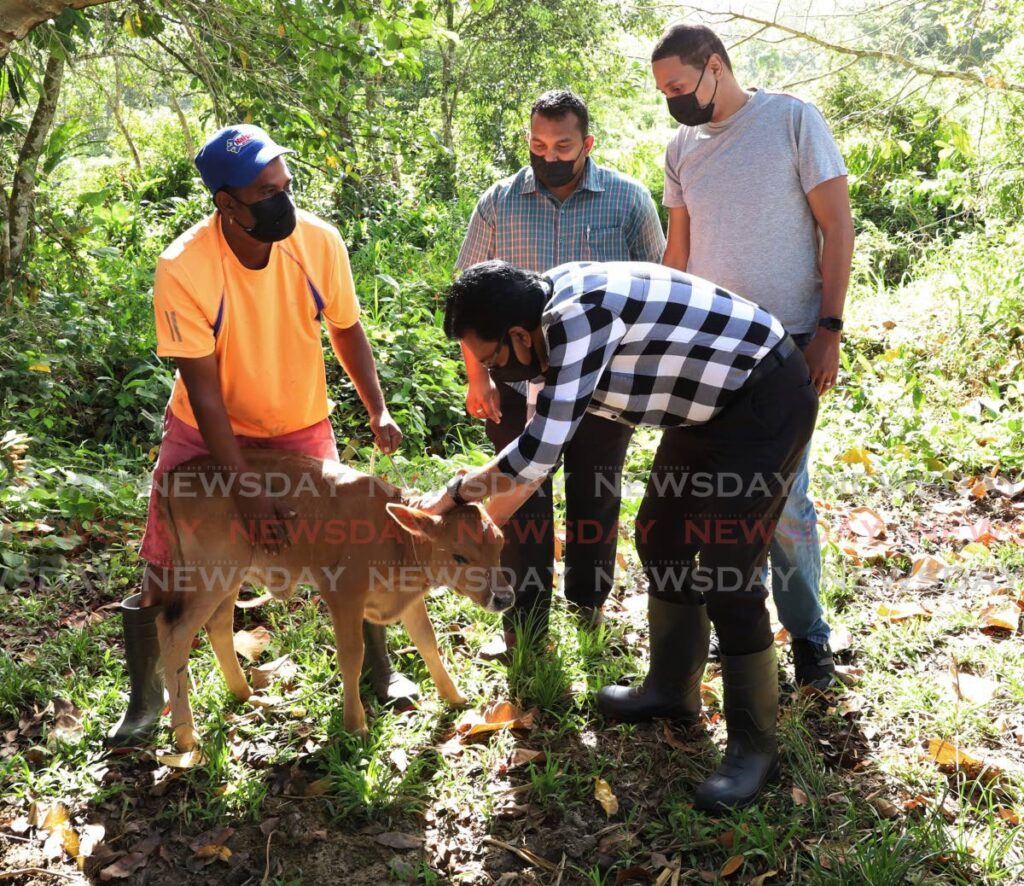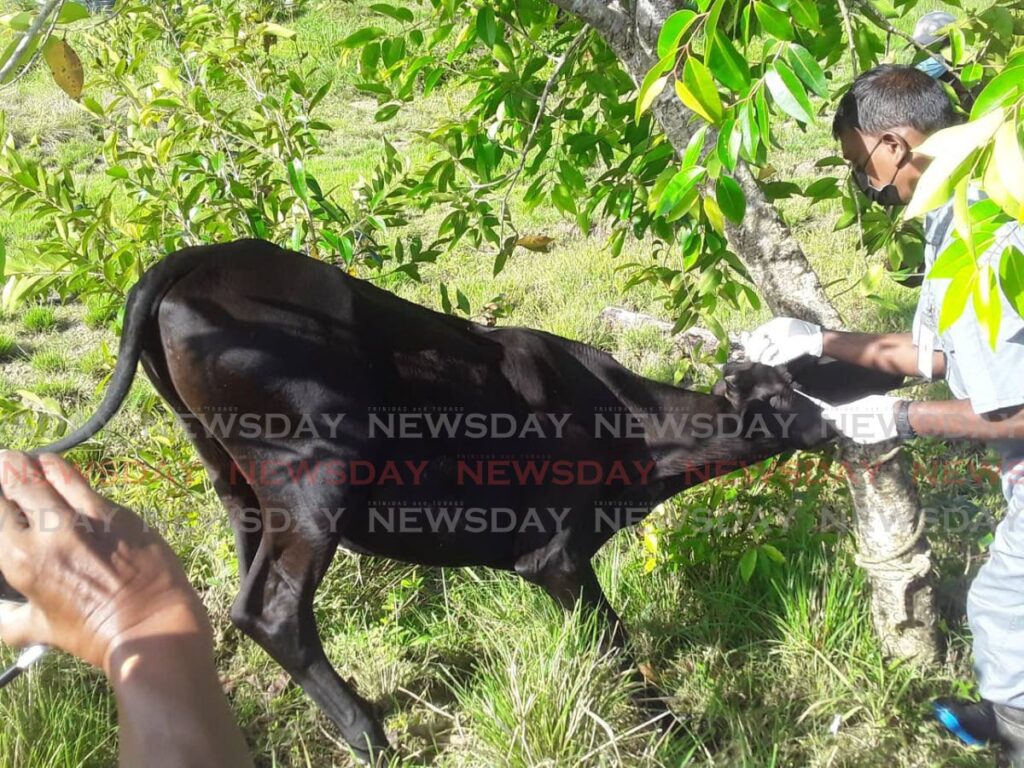Hosein: 1,600 animals vaccinated against rabies

AGRICULTURE Minister Kazim Hosein has said approximately 1,600 livestock (cattle, sheep and goats) have been vaccinated to date against rabies.
He spoke during a rabies vaccination exercise at a farm in Sukhan Trace, Barrackpore on Thursday.
In the Senate on Tuesday, Hosein said steps were being taken to address an outbreak of rabies in the area.
He told reporters that since being appointed agriculture minister in a Cabinet reshuffle on March 16, this was his first day in the field.
Hosein was accompanied by ministers in the Agriculture Ministry Nigel De Freitas and Avinash Singh. De Freitas, formerly Senate vice-president, gave up this post after he was appointed a minister in the Cabinet reshuffle.
Hosein was pleased that before he assumed office, the ministry was already taking action on cases of rabies in Barrackpore. "They were already on the ball."
To date, he said 22 cows and two sheep have died.
"It is affecting most of the southern region right now."
Hosein added some rabies cases were reported in Penal as well. While no other reports have come from any other part of the country, Hosein said ministry personnel are checking in other areas.
He was encouraged by the response from farmers in Barrackpore to get their animals vaccinated.
"The vaccination process is very, very important."
Hosein said the ministry has set up a direct line of communication for them to report possible rabies cases and also has an ongoing public awareness campaign about rabies.
Common rabies symptoms in livestock are excess salivation, lack of co-ordination of the hind limbs, downer cow syndrome (animal falls and cannot get up), animals lying on their side and death.
Hosein also said he spoke on Tuesday with Health Minister Terrence Deyalsingh about an ongoing programme to vaccinate people against rabies.
Ministry veterinary officer Dr Jevan Siewsankar said, "Every single farmer that has had a suspect case has been sent to get the prophylactic vaccine. As of today, that would be 29-30."
Siewsankar attributed this outbreak of rabies to a surge in the bat population, and reminded the media that rabies is endemic in Trinidad and Tobago.
"We have had five outbreaks in the last 50 years. This is probably the sixth."
The frequency of vaccination depends on the type of vaccine used and the type of livestock it is used on.
Siewsankar said, "Cattle with the brand that we are using now get vaccinated every three years. Sheep and goats get vaccinated every year."
He said one reason why livestock contract rabies is because farmers use private vets instead of the ministry's services to vaccinate their animals.
"It seems as if these private vets have not been encouraging the farmers to go and get their animals vaccinated by the ministry. "Lot of the farmers had animals that were unvaccinated for years. We are encouraging all farmers to call us to make appointments to get their animals vaccinated."

Reiterating that rabies from infected livestock is spread through their saliva, Siewsankar said the risk of infection to people lies in the infected animal saliva entering the mucous membranes in their eyes or mouths or open wounds on their bodies.
But this by itself will not cause rabies to spread from person to person.
"Only if a person gets rabies it will progress."
Intiatl rabies symptoms in people include weakness, fever or headaches which can last for days. These symptoms then progress to cerebral dysfunction, anxiety, confusion, and agitation. Human-to-human transmission of rabies virus has only been documented from infected organ/tissue donors to transplant recipients.
While cooking animal meat can eliminate the rabies virus, Siewsankar said as a rule, people are advised not to eat any meat from an animal that is suspected to have rabies. He added that because rabies is spread through an animal's saliva, it poses a risk to butchers when they are cutting up the body of an infected animal.
Ministry anti-rabies officer Albert Griffiths said different measures are used to protect livestock from vampire bats carrying the virus. One is applying an anti-coagulant paste to an bite spot on an animal. Griffith said because bats bite an animal in the same place to feed on it, it will ingest the paste, which kills in it three days.
Fine mist nets are used to catch vampire bats. Griffiths said the paste is then put on the bats, the bats are released and can spread the paste to 20-40 other bats in their nesting spot.
He said efforts are also made to move bats from nearby nesting areas such as caves or the hollow interior of dead trees.
Farmer Dave Rambajan said none of his five cows and three sheep have been infected. While he was grateful his animals were vaccinated and what the ministry was doing to deal with rabies, he said, "I'm worried for people's animals."
Rambajan has been a farmer for the last seven years.
"Animals are hard to mind."
Pointing to an adult brown cow grazing contentedly in the bush nearby, Rambajan said it cost $12,000 to care for her. "Sometimes she makes twins."
He also said praedial larcency remains a problem for farmers. Rambajan recalled that a neighbour had two bulls stolen from his property and hoped the ministry would help the farmers with better security in the future.


Comments
"Hosein: 1,600 animals vaccinated against rabies"